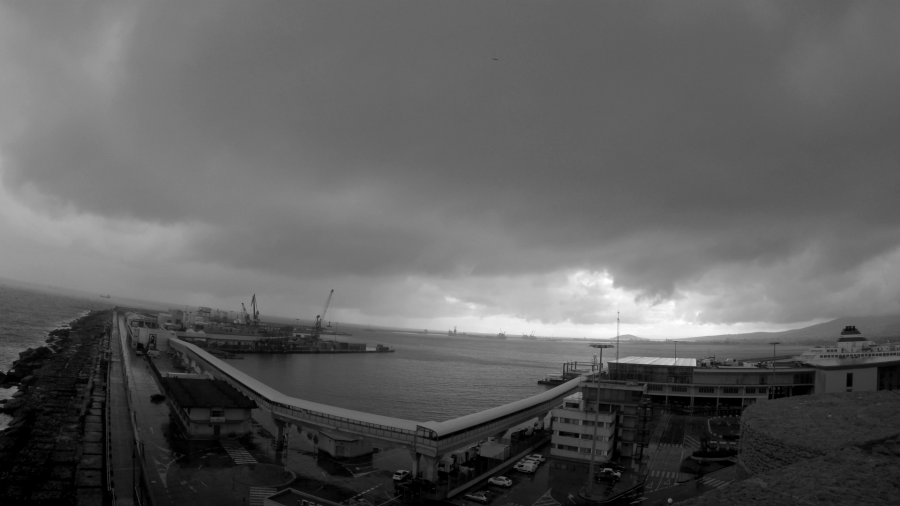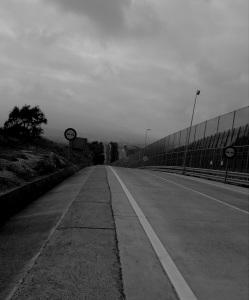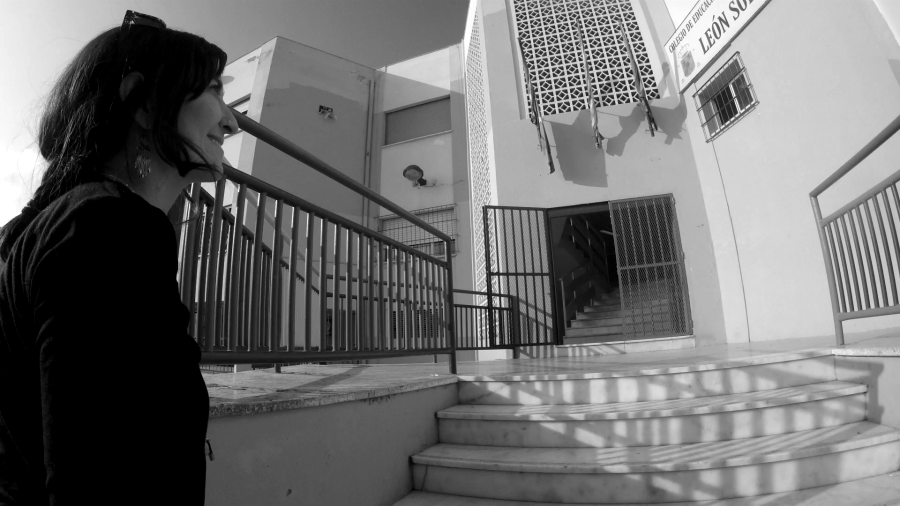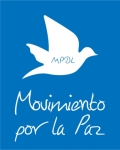

To cross the frontier has been longer than expected.
Traffic jam at the gates, thousands of Moroccan passing by …
People coming to beg at your windows for money every minutes …
Border officers checking out the van and passing it through x-ray, looking for drugs or something else …

Well, after 4 hours stucked at the border, I finally made it to Melilla, the second spanish enclave of Morocco.

Here the first thing I had to do was to get comfortable with language … I used to speak spanish, and I still remembering the most of it but, to switch from english to french, Arabic and spanish in that few time is somehow really disturbing.
So I started speaking with a mix of the four languages which was somehow wired for me, but must have been funny for the locals.
And I first meet Llunaida who’s the lady who welcomed me in the little city-state.
She was born here and has spent most of her life fighting for equality and human rights, as her family like many other here has amasir roots.
She was involved in many things and was naturally working in an NGO called “movimiento por la paz”, movement for peace, which was working on the fields of social inclusion, intercultural exchange and equality of human rights … then we naturally complemented each other work and she brought me a lot in my research.


She told me about the old story of the city; the fact that under Franco, the dictator was involving moroccan and amazir people to fight against the republicans, which was explaining one part of the cultural, ethical and migratory situation of the enclave.
Yuni drove me to the borders of her small piece of country, which was surrounded by 5 circles of fences about 4-5 meters high …


Here the fortress Europe was physically drawing the lands but she also taught me that it hasn’t always been the case … telling me that 30 – 40 years ago, the border was a simple little barrier that everyone could jump on and cross … and at the time, immigration and frontier and all the troubles that we know nowadays didn’t exist …
She also told a out the dreams and hope of the population : to leave this place … to escape from the town and to reach the peninsula.
Such a difficult thing when you barely get enough money to pay the rent and can’t save enough to pay a flight ticket … such a hard thing to find a work abroad in spain or europe … then … many of the people have to stay here, trapped in the little enclave where most of the jobs are provided by the army or the ”guarda civil” to protect the border and to make the place ”safer” leaving the citizens living in a palpable fear and paranoia.

And then we started working … I met Miriem who was the Yuni co-worker. The two of them were giving classes to the women in need of the city.
Indeed, a lot of them where staying here without papers, without a job etc … facing the harsh conditions of being both, foreigner and women, in a place that had more of a jungle than a town.

Here the dream of Europe was showing its other face, excluding the ones who could not fit the scheme of the society.
And the Moroccan women surviving here were struggling for a lot of things.
First, they were enduring the patriarchal tradition, having to stay at home, caring for the cook, the cleaning and the kids …
By doing so, few of them were enable to go out and to learn from the outside world … ignoring how to speak spanish, and so to go to school, and then enabled to learn anything, to communicate, to work and then to empower themselves.

All of these challenges were what the Movimiento Por La Paz was trying to solve …
I followed Yuni to met the women, and not having that much time ahead of us, we started doing a story telling project about these women, about their life, the way they were seeing the world, the peace, education, the women conditions etc … and it was intense.
And it’s funny and sad to see the change of statu that are facing these women who are the one who’re against the migrants in their country 10km away, and the ones who’re facing the rejection and racism here …
And I don’t care about their origin country as they are facing the same problems that I founded abnormal and unfair.
Because doing this work is not about one population that suffers, it’s not about a genre, or a country … it’s about trying to figure out and to help wherever the people have to move for whatever reason, it’s about understanding their life and their needs to make their journey better and to try building a better world for them, for me and all the other …






